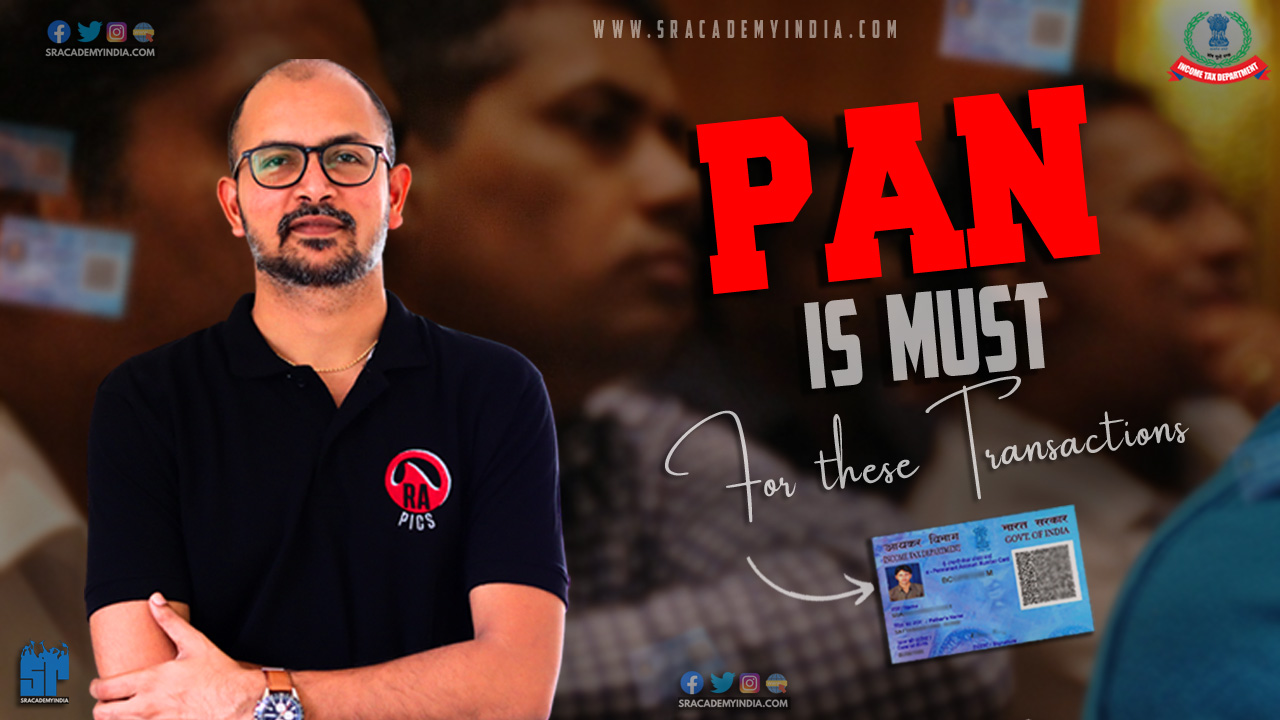Introduction
Permanent Account Number (PAN) is compulsory for certain transactions and one shall furnish the same while undertaking these transactions. Non-quoting PAN may lead to certain consequences under the Income Tax Act.
In this article let’s discuss those transactions for which you need to compulsorily quote your PAN number.
Transactions for which PAN is compulsory
For the reader’s convenience, the entire list of transactions was split into limit-wise categories to understand them easily.
| Category | Limit for quoting PAN |
| I | No limits, applicable for all transactions |
| II | Rs. 50,000 |
| III | Rs. 1 Lakh |
| IV | Rs. 10 Lakh / Rs. 2 Lakh |
Let’s see what all the transactions covered under each of the categories:
I. Quoting PAN is Compulsory – For All transactions
- Sale or purchase of Motor vehicles other than two-wheelers
- Opening an account with a Bank or Co-operative bank (other than a Time Deposit)
- For the issue of a Debit card or Credit card
- For opening a Demat account
II. Quoting PAN is Compulsory – Limit is Rs. 50,000
- Payment to a Hotel or Restaurant against a bill or bills at one time – Cash payment of more than Rs. 50,000
- Payment in connection with Foreign travel or purchase of Foreign currency at one time – cash payment of more than Rs. 50,000
- Payment Mutual Fund units – Payment of more than Rs. 50,000
- Payment for Bonds or Debentures – Payment of more than Rs. 50,000
- Payment to RBI bonds – Payment of more than Rs. 50,000
- Deposit with Bank or Co-operative bank – Cash deposit greater than Rs. 50,000 during any one-day
- Purchase of Bank drafts, Pay orders, Banker’s cheques from a Bank or Co-operative bank – Cash payment greater than Rs. 50,000 during any one-day
- Time deposit with Bank, Cooperative bank, Post Office or Nidhi Company – One time Rs. 50,000 or aggregating Rs. 5 Lakh in a financial year
- Payment to a Bank, Cooperative bank or any other company for the purchase of one or more prepaid instruments – Payment in Cash or Bank draft or Pay order or Banker’s cheque of the aggregate amount of more than Rs. 50,000 in a financial year
- Life Insurance Premium – aggregate of more than Rs. 50,000 in a financial year
III. Quoting PAN is Compulsory – Limit is Rs. 1 Lakh
- Sale or purchase of Securities other than shares – Amount exceeding Rs. 1 Lakh per transaction
- Sale or purchase of shares in a Company not listed in a Recognised Stock Exchange – Amount exceeding Rs. 1 Lakh per transaction
IV. Quoting PAN is Compulsory – Others
- Sale or purchase of Immovable Property – Amount exceeding Rs. 10 Lakh
- Sale or purchase of any goods or services of any nature rather than mentioned above – an Amount exceeding Rs. 2 Lakh per transaction
Consequences for non-quoting of PAN
Any person who is covered under the above criteria but fails to apply for a PAN shall be liable to a penalty of Rs. 10,000 per failure as per section 272B.
Conclusion
Since penalties are also involved for non-quoting PAN in the above transactions, please ensure to quote your PAN wherever necessary. These transactions may sometimes even be reported as Specified Financial Transactions (SFT) by the reporting agencies i.e. Banks and other financial institutions after a certain limit. So make sure to check them in your AIS and consider them suitably while filing ITR filing.
Hope you have enjoyed reading this article, thank you for your time.





